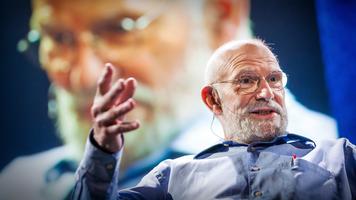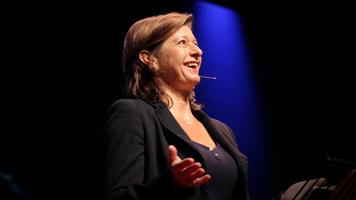Charles Anderson: Dragonflies that fly across oceans
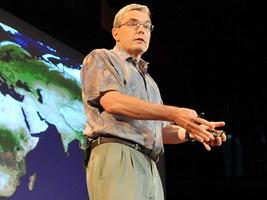
While living and working as a marine biologist in Maldives, Charles Anderson noticed sudden explosions of dragonflies at certain times of year. He explains how he carefully tracked the path of a plain, little dragonfly called the globe skimmer, only to discover that it had the longest migratory journey of any insect in the world.
Addison Anderson: The most groundbreaking scientist you've never heard of
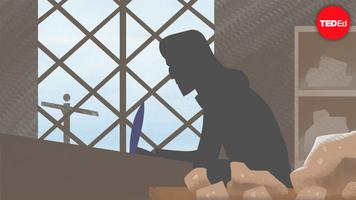
Seventeenth-century Danish geologist Nicolas Steno earned his chops at a young age, studying cadavers and drawing anatomic connections between species. Steno made outsized contributions to the field of geology, influencing Charles Lyell, James Hutton and Charles Darwin. Addison Anderson recounts Steno's little-known legacy and lauds his insisten...
Charles Wallace and Sajan Saini: Why a sausage can do what your gloves cannot

In 2010, South Korea experienced a particularly cold winter. People couldn't activate their smartphones while wearing gloves, so they began wielding snack sausages— causing one company to see a 40% rise in sausage sales. So, what could sausages do that gloves couldn't? In other words, how do touchscreens actually work? Charles Wallace and Sajan ...
Marc Fagelson: What's that ringing in your ears?
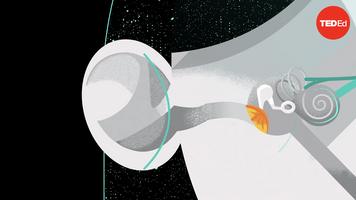
Tinnitus has been bothering humanity since Ancient Babylon, plaguing everyone from Leonardo da Vinci to Charles Darwin. Today, roughly one in seven people worldwide experiences this auditory sensation. So what exactly is tinnitus, and where does this persistent sound come from? Marc Fagelson travels into the auditory system to explore the loss o...
Charles Wallace: Puke, poop and tiny cockroaches: How the leafcutter ant queen runs her farm
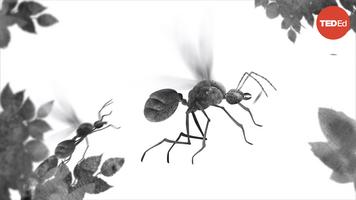
In a Texas clearing, an ancient tale that ties four species together is unfurling. The first involved is a soon-to-be queen leafcutter ant. The second is fungus, a piece of which she scoops into her mouth pocket. The third are cockroaches, which nestle under her wings. And the fourth is the one that threatens them all. Charles Wallace takes a lo...
Iseult Gillespie: Why should you read Charles Dickens?
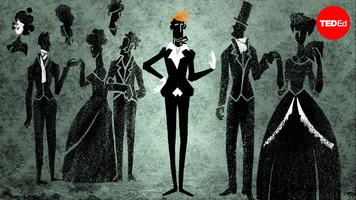
The starving orphan seeking a second helping of gruel. The spinster wasting away in her tattered wedding dress. The stone-hearted miser plagued by the ghost of Christmas past. More than a century after his death, these remain recognizable figures from the work of Charles Dickens. But what are the features of Dickens' writing that make it so spec...
Sarthak Sinha: Why do some people go bald?
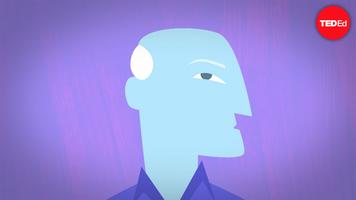
What do Charles Darwin, Michael Jordan, and Yoda have in common? They, like many other historical and fictive individuals, are bald. Scientists have long pondered, why do some people lose their hair, and how can we bring it back? Sarthak Sinha explores the basics of baldness. [Directed by Brett Underhill, narrated by Addison Anderson].
Alex Gendler: Building the impossible: Golden Gate Bridge
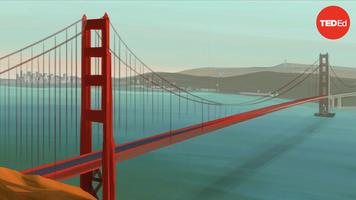
Stretching 227 meters tall, two towers were assembled to support California's Golden Gate Bridge. They were just one of the challenges facing engineers Charles Ellis and Joseph Strauss. Even before construction began, many thought the project impossible: the strait was home to powerful winds, constant fog, and earthquakes. So how was this iconic...
Oliver Sacks: What hallucination reveals about our minds
John Cameron: Why do we hiccup?
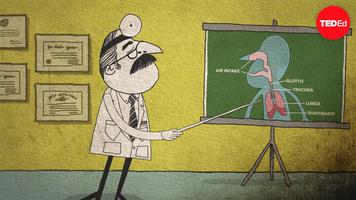
The longest recorded case of hiccups lasted for 68 years ... and was caused by a falling hog. While that level of severity is extremely uncommon, most of us are no stranger to an occasional case of the hiccups. But what causes these 'hics' in the first place? John Cameron takes us into the diaphragm to find out. [Directed by Black Powder Design,...
Joshua Harvey: The evolution of the human eye
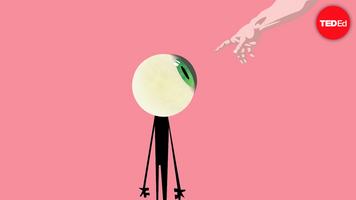
The human eye is an amazing mechanism, able to detect anywhere from a few photons to a few quadrillion, or switch focus from the screen in front of you to the distant horizon in a third of a second. How did these complex structures evolve? Joshua Harvey details the 500 million year story of the human eye. [Directed by Artrake Studio, narrated Ad...
David Anderson: Your brain is more than a bag of chemicals
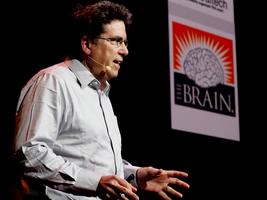
Modern psychiatric drugs treat the chemistry of the whole brain, but neurobiologist David Anderson has a more nuanced view of how the brain functions. He shares new research that could lead to targeted psychiatric medications -- that work better and avoid side effects. How's he doing it? For a start, by making a bunch of fruit flies angry.
Christopher E. Gaw: What causes seizures, and how can we treat them?
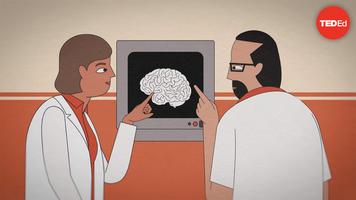
Nearly 3,000 years ago, a Babylonian tablet described a curious illness called "miqtu" that caused symptoms ranging from facial twitching to full body convulsions. Today we know miqtu as seizures, and modern medicine has developed numerous treatments for those experiencing them. So what causes seizures, and is there any way to stop them from hap...
Stephanie Honchell Smith: Why was bloodletting so popular?
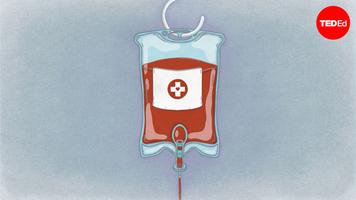
Bloodletting was a pervasive medical practice that dates as far back as ancient Greece and continued well into the 19th century. Physicians like Hippocrates believed bad health could be attributed to a fluid imbalance, and recommended bloodletting to help reset the body's balance. So, why did bloodletting stick around so long? Stephanie Honchell...
Terry Kupers: What happens to your brain without any social contact?
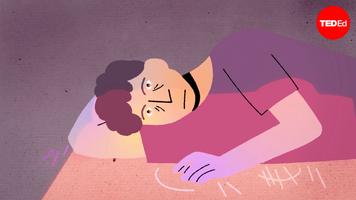
Everyone needs time to themselves, and peaceful solitude has stress-relieving benefits. But when being alone is forced upon you, the effects can be surprisingly extensive. And though different people experience distinct effects, symptoms tend to become more severe and persistent the longer one’s isolated. So, how exactly does isolation affect yo...
Jonathan Morris: How humanity got hooked on coffee
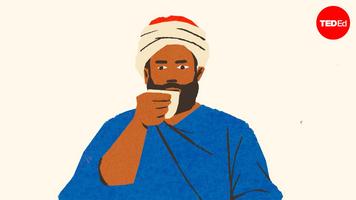
One day around 850 CE, a goatherd observed that his goats started acting abnormally after nibbling on some berries. The herder tried them himself, and soon enough, he was just as hyper. As the story goes, this was humanity’s first run-in with coffee. So, how did coffee go from humble plant to one of the world's most consumed beverages? Jonathan ...
Conor Heffernan: The treadmill's dark and twisted past
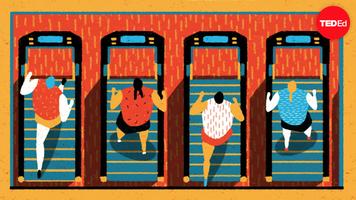
The constant thud underneath your feet. The constrained space. The monotony of going nowhere fast. Running on a treadmill can certainly feel like torture, but did you know it was originally used for that very purpose? Conor Heffernan details the dark and twisted history of the treadmill. [Directed by Yukai Du, narrated by Addison Anderson, music...
Ilan Stavans: How to get a word added to the dictionary

While the concept of a dictionary dates back to ancient civilizations, the first English dictionary wasn't published until 1604. In the centuries that followed, many more dictionaries were written by individual authors who chose what to include or exclude, with most quickly becoming outdated. One 19th century lexicon had a different fate. Ilan S...
The TED Interview: Sir Ken Robinson (still) wants an education revolution
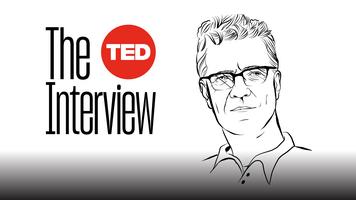
Do schools kill creativity? Back in 2006, Sir Ken Robinson posed this question to the TED audience -- and boy, did it touch a nerve. More than fifty million views and a decade later, head of TED Chris Anderson sits down with Sir Ken to dig into the changes and progress that have been made, and to see if the answer now is any different. How are e...
Dr. Phillip Atiba Solomon, Rashad Robinson, Dr. Bernice King, Anthony D. Romero: The path to ending systemic racism in the US
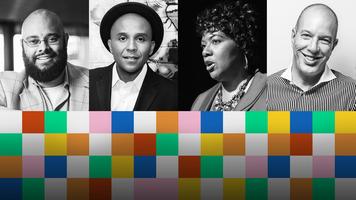
In a time of mourning and anger over the ongoing violence inflicted on Black communities by police in the US and the lack of accountability from national leadership, what is the path forward? Sharing urgent insights into this historic moment, Dr. Phillip Atiba Solomon, Rashad Robinson, Dr. Bernice King and Anthony D. Romero discuss dismantling t...
WorkLife with Adam Grant: How science can fix remote work
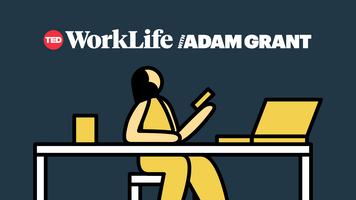
Remote work was a trend that some companies and gig workers were trying out, even as others resisted. Then the pandemic made it an overnight reality for many of us. This feels like uncharted territory, but there's already plenty of knowledge on how to do it well. Learn from someone who has done more remote work than almost anyone on the planet -...
Alison Jackson: An unusual glimpse at celebrity
Christopher Ryan: Are we designed to be sexual omnivores?
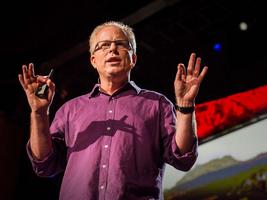
An idea permeates our modern view of relationships: that men and women have always paired off in sexually exclusive relationships. But before the dawn of agriculture, humans may actually have been quite promiscuous. Author Christopher Ryan walks us through the controversial evidence that human beings are sexual omnivores by nature, in hopes that...
Lee Cronin: Making matter come alive
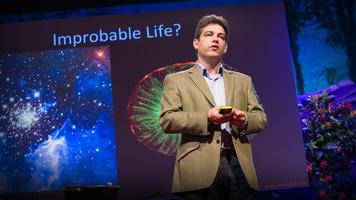
Before life existed on Earth, there was just matter, inorganic dead "stuff." How improbable is it that life arose? And -- could it use a different type of chemistry? Using an elegant definition of life (anything that can evolve), chemist Lee Cronin is exploring this question by attempting to create a fully inorganic cell using a "Lego kit" of in...
Jim Yong Kim: Doesn't everyone deserve a chance at a good life?

Aspirations are rising as never before across the world, thanks in large part to smartphones and the internet -- will they be met with opportunity or frustration? Former President of the World Bank Group Jim Yong Kim shares how the institution is working to improve the health and financial futures of people in the poorest countries by boosting i...
Gretchen Carlson, David Brooks: Political common ground in a polarized United States

How can we bridge the gap between left and right to have a wiser, more connected political conversation? Journalist Gretchen Carlson and op-ed columnist David Brooks share insights on the tensions at the heart of American politics today -- and where we can find common ground. Followed by a rousing performance of "America the Beautiful" by Vy Hig...
Carlos de Andrade: É possível construir um Espírito Livre?
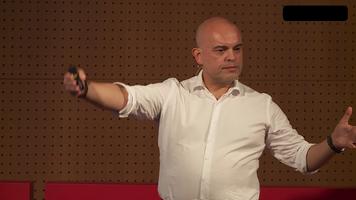
A espécie humana tem um longo período de infância e adolescência, para que aconteça o desenvolvimento e a maturação de sistemas vitais. É um processo lento, que requer determinadas condições, contudo, trata-se de uma oportunidade extraordinária para desenvolver competências e valores essenciais, através de experiências biopsicossociais e espirit...
Andrés Vallejo, Juan Carlos Velasco: Por qué no uso cinturón de seguridad (y usted también podría no hacerlo)
Carlos José de Coelho Andrade: Felicidade baseada em evidência

O médico oncologista do INCA (Instituto Nacional do Câncer) e mestre em gestão de tecnologias em saúde, Carlos José de Andrade, traz evidências de que a felicidade é um fator fundamental na manutenção da saúde e na prevenção de doenças. “A principal missão de vida é ser feliz”, afirma. Andrade sensibiliza ao contar alguns relatos da experiência ...
